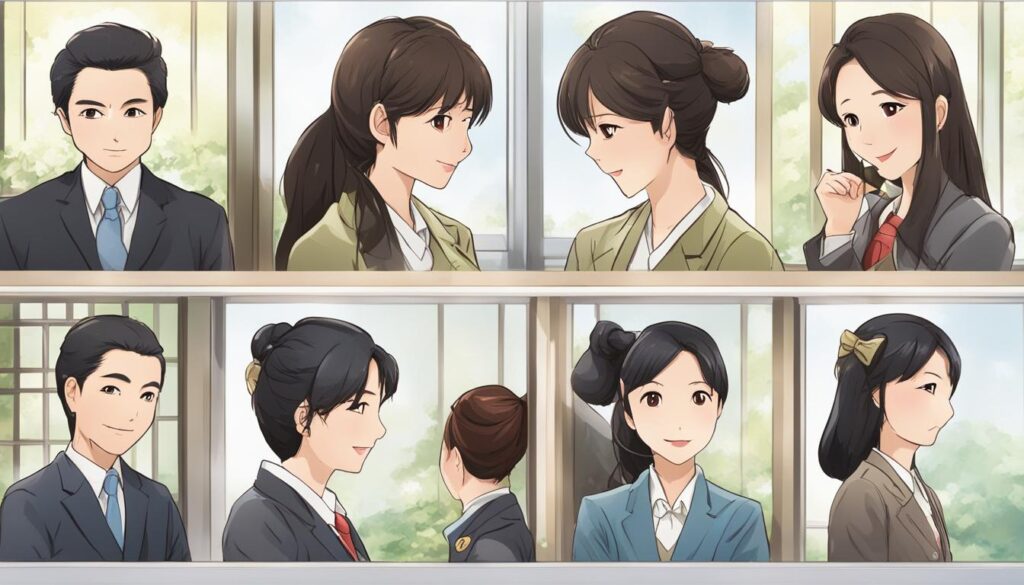In Japanese, there are several ways to express “alright” depending on the context and level of formality. Understanding how to say “alright” in Japanese will enhance your conversational skills and cultural understanding. So, let’s dive in and discover the different ways to convey “alright” in the Japanese language!
Common Ways to Say Alright in Japanese
In Japanese, there are several common phrases to express “alright” depending on the context and formality level. Familiarizing yourself with these phrases will allow you to navigate conversations and better understand Japanese culture.
The following are some frequently used expressions for “alright” in Japanese:
1. Daijoubu desu – This phrase translates to “it’s okay” or “I’m okay.” It is often used to reassure someone or confirm that everything is fine. For example, if someone asks if you’re alright, you can respond with “daijoubu desu.”
2. Wakarimashita – This phrase means “I understand.” It can be used to acknowledge a situation or indicate comprehension. For instance, if someone provides you with instructions or information, you can respond with “wakarimashita” to convey that you understand.
3. Okke – This expression is a casual way to say “alright” and is borrowed from English. It is commonly used among friends and peers in informal conversations. You might hear it in casual settings or when agreeing with something casually, like making plans with friends.
Other phrases that can be used to convey “alright” include:
| Phrase | Meaning |
|---|---|
| Ii desu | “It’s good” or “it’s fine” |
| Yoshi | Similar to saying “alright” |
| Kashikomarimashita | Meaning “I acknowledge” or “I understand” |
| Shouchi shimashita | Literal translation is “I consented” or “I accepted” |
| Ryoukai shimashita | Means “I understand” or “I got it” |
Learning these different ways to say “alright” in Japanese will enrich your conversational skills and help you navigate various social situations.
Can “Hai” Mean OK in Japanese?
Yes, “hai” can mean “OK” in Japanese. The word “hai” is usually understood as an affirmative word and is often translated as “yes” in Japanese. However, it can also be used to express “OK” or “yes, I understand” in certain contexts. It is commonly used alongside phrases like “wakarimashita” or “daijoubu desu” to convey agreement or understanding.
While “hai” may seem simple, its usage can depend on the situation and the level of formality. In more formal settings, it is common to use phrases like “wakarimashita” or “daijoubu desu” to express “OK” or agreement. However, in casual or everyday conversations, “hai” can be used to convey a similar meaning.
For example, if someone asks you if you understand something, you can reply with a simple “hai” to indicate that you do. Similarly, if someone asks if you’re okay with a plan or suggestion, responding with “hai” can mean “yes” or “OK.”
It’s important to note that the tone and context in which “hai” is used can affect its meaning. In some situations, “hai” may be used more as a placeholder or to acknowledge the other person’s statement without necessarily indicating full agreement or enthusiasm.
| Usage | Meaning |
|---|---|
| “Hai” alone | Acknowledgment or agreement |
| “Hai, wakarimashita” | “Yes, I understand” or “OK” |
| “Hai, daijoubu desu” | “Yes, it’s OK” or “No problem” |
Overall, “hai” can indeed mean “OK” in Japanese, but its usage and meaning can vary depending on the context and level of formality. It’s important to take into account the overall conversation and cultural nuances to ensure effective communication.
Japanese Slang for “Alright”
In addition to the formal and common ways to say “alright” in Japanese, there are also slang expressions that are commonly used among friends and peers. These slang expressions add a casual and trendy touch to conversations. Let’s explore some Japanese slang for “alright” below:
1. Yoshi
The slang expression “yoshi” is often used to mentally or physically prepare oneself for something. It can be translated as “let’s go,” “alright,” or “I’m ready.” For example, if your friend asks if you’re ready to start playing a game, you can respond with “Yoshi!” to indicate that you’re ready to go.
2. Ri
“Ri” is another trendy and casual way to say “alright” in Japanese slang. It is commonly used among young people and peers in informal settings. For instance, if your friend suggests going for a walk, you can reply with a simple “ri” to show your agreement.
3. Riyoukai
The slang expression “riyoukai” is often used in response to orders from a superior or in situations where an action is expected. It can be translated as “okay” or “roger that.” For instance, if your boss tells you to complete a task, you can acknowledge their instruction by saying “Riyoukai.”
These are just a few examples of Japanese slang expressions for “alright.” They add a playful and informal touch to conversations, making them especially popular among friends and peers. Incorporating these slang expressions into your Japanese language skills will help you sound more natural and culturally aware.
Other Words That Can Mean “Alright”
In addition to the commonly used phrases for “alright” in Japanese, there are other words that can convey a similar meaning. These alternative expressions provide you with more options to express “alright” in Japanese based on the specific context and level of formality.
One such word is “maamaa,” which is used to indicate a state of being “so-so” or not strongly opposed to something. It’s a versatile word that can be used in various situations.
Another word that can mean “alright” is “kekkou desu.” Depending on the context, it can be translated as “it’s okay” or “I’ve had enough.” This expression can be used to express contentment or satisfaction.
If you want to assure someone that things will turn out well, you can use the phrase “umaku iku yo/sa.” This conveys the message that everything will go smoothly and turns out alright.
On the other hand, if you’re referring to managing or handling a situation, you can use “nantoka naru sa.” This phrase means “to be able to manage somehow or another” and can be used when things may not go perfectly, but you believe they will work out alright in the end.
Can You Say “OK” in Formal Situations?

While phrases like “daijoubu desu” and “wakarimashita” can be used in both casual and formal situations, saying “OK” directly or using slang expressions like “yoshi” or “ri” may not be appropriate in formal settings, such as in business or customer service. In formal situations, it is recommended to use honorific language or polite expressions like “kashikomarimashita” or “shouchi shimashita” to convey agreement or understanding.
If you find yourself in a formal setting where the use of “OK” is not suitable, it’s essential to familiarize yourself with formal ways to express agreement or understanding in Japanese. One such form of formal Japanese is called “けいご” (Keigo).
Keigo is a polite form of speech used to show respect and politeness to those in higher positions or authority. It is commonly used in formal situations such as business meetings, job interviews, and when interacting with superiors or customers.
Using Keigo, you can convey agreement or understanding in a formal manner. Some examples of formal expressions for “OK” in Japanese include:
| Formal Expressions | Meaning |
|---|---|
| ご承知しました | I understand |
| 了解しました | Understood |
| かしこまりました | Understood |
| 大丈夫です | It’s fine |
These formal expressions can be used to convey agreement, understanding, or to assure someone that you have comprehended their message or request. Remember to use these expressions appropriately in formal situations to maintain a respectful and professional demeanor.
By familiarizing yourself with formal ways to say “OK” in Japanese, such as using Keigo expressions, you can navigate formal settings with confidence, show respect to others, and effectively communicate your agreement or understanding.
Conclusion
In conclusion, learning how to say “alright” in Japanese provides you with a range of options to navigate different social situations and enhance your conversational skills in the language. Whether you prefer using formal phrases like “daijoubu desu” and “wakarimashita” or opting for slang expressions like “yoshi” and “ri,” understanding these different expressions is key.
Remember to consider the level of formality and the context in which you are using these expressions. In more formal settings, it is best to use honorific language or polite expressions like “kashikomarimashita” or “shouchi shimashita” to convey agreement or understanding. However, among friends and peers, using slang expressions can create a more casual and relaxed atmosphere.
With practice, you will gain confidence in using these expressions and be able to say “alright” in Japanese with ease. So, dive into Japanese language learning and explore the various ways to express “alright” – it will open doors to meaningful conversations and a deeper cultural understanding.

